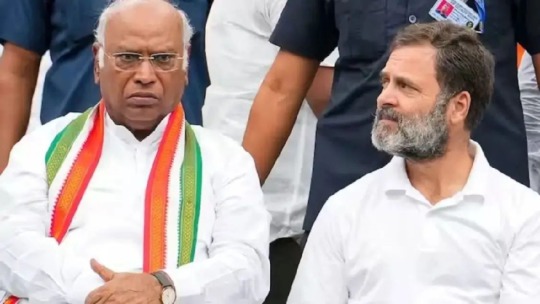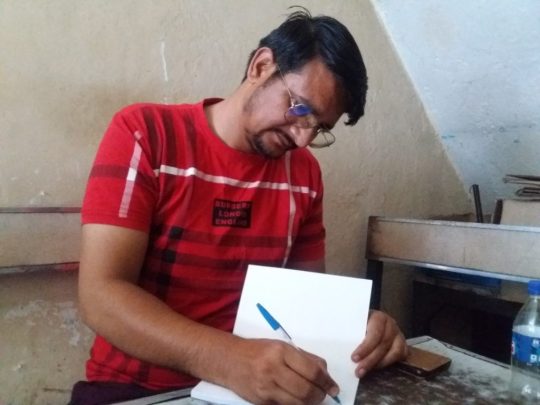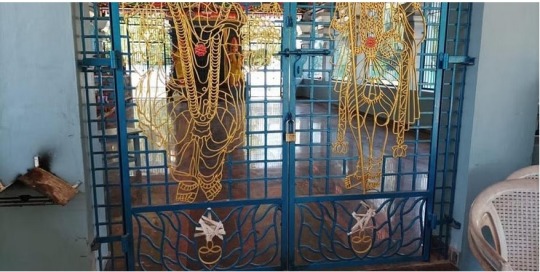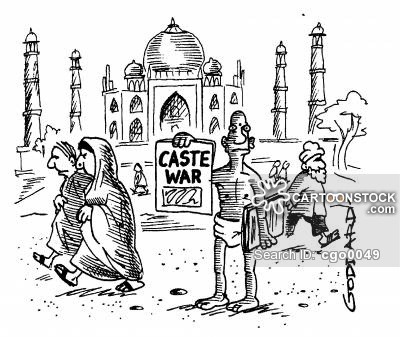#Dalits
Text
Hardly a day passes without news of mob violence against Muslims and Dalits. The violence may range from online trolling, online abuse, rape, and intimidation to physical attacks, lynchings, and calls for genocide. The excuses abound the myth of the Muslim population boom, cow killing, cattle trading, beef eating, love-jihad, burqua, the nuisance of the azan, etc. From their food habits to sartorial wear, from their prayers to recitation of their holy book—everything is under the Hindutva scanner. The non-issues are the main issues in Modi’s “New India”. And flames of hatred are being nurtured at each home. To our surprise, even our mothers and sisters, so-called anchors of moral values and familial congeniality, are fueling the flames of hatred.
Abu Siddik, ‘Flames Of Hatred In Modi’s India', Countercurrents
53 notes
·
View notes
Text
14 avril : l’anniversaire du Dr Ambedkar, l’un des fondateurs de l’Inde actuelle
C’est le 134e anniversaire de Babasaheb Ambedkar et son aura n’a cessé de grandir ces dernières années. Cet homme, né dans un milieu défavorisé et qui sera l’un des premiers intouchables à faire des études supérieures, à bénéficier d’une bouse pour étudier aux États-Unis et à Londres, et à se hisser au plus haut niveau de l’État indien dont il a participé à la fondation. Il fut député, ministre de la Justice, du Travail… On lui doit pour l’essentiel la constitution indienne, notamment les articles sur la laïcité, la lutte contre les discriminations. Très jeune, il a lutté contre le système des castes et, une fois au gouvernement, il a mis en place une discrimination positive.
Bhimrao Ramjo Ambedkar est né le 14 avril 1891 à Mhow (appelé aujourd'hui Ambedkar Nagar) dans le Madhya Pradesh. Son anniversaire a été fêté publiquement pour la première fois à Pune en 1928 par ses partisans. Mais il a fallu attendre 1990, à la veille de son centenaire, pour que le Dr Ambdekar reçoit à titre posthume le Bharat Ratna, la plus haute distinction civile indienne. En outre, la période 1990-91 avait été déclarée « Année de la justice sociale ». Certains État de l’Inde célèbrent le 14 avril une journée de l’équité. Babasaheb Ambedkar (son surnom) est particulièrement vénéré par les intouchables qu’il appelait les datits, et basses castes dont il était (car sa famille était de la la caste des Mahars) ; mais aussi des bouddhistes, car un an avant sa mort, en 1956, il s’était converti au Bouddhisme pour protester contre le maintien de l’esprit des castes (pourtant abolies par la constitution) et la sur-représentation des hautes castes au sommet de l’État. Il avait entraîné avec lui la conversion en masse de plusieurs centaines de milliers d’intouchables.
Ambedkar Jayanti n'est pas une fête nationale en Inde. Mais, c'est un jour férié dans 25 États et territoires de l'Union indienne (sur 36) , dont Andhra Pradesh , Bihar , Chandigarh , Chhattisgarh , Goa , Gujarat , Haryana , Himachal Pradesh , Jammu-et-Cachemire , Jharkhand , Karnataka , Kerala , Ladakh , Madhya Pradesh. , Maharashtra , Odisha , Pondichéry , Pendjab , Rajasthan , Sikkim , Tamil Nadu , Telangana , Uttarakhand , Uttar Pradesh , Bengale occidental…
Ce sont ces deux dernières décennies que le culte d’Ambdekar a pris de l’ampleur. Le jour de son anniversaire, les gens se rassemblent devant les statues et les mémoriaux du Dr Ambedkar pour lui rendre hommage. Les autorités indiennes ont fini par s’y plier et à déclarer, localement, la journée du 14 avril comme fériée. Les écoles et les universités organisent des séminaires, des conférences et des discussions pour informer les jeunes générations sur la vie, les philosophies et les contributions d'Ambedkar. Les processions et rassemblements publics sont très courants dans le cadre des célébrations. On organise chaque année un marathon, « Run for Ambdekar » , des spectacles de danse et de musique traditionnelles illustrant les thèmes de l'égalité et de la justice sociale ajoutent une dimension culturelle aux célébrations. On prononce des discours et organise des débats sur des questions liées à la justice sociale et à la discrimination de caste.
Il n’est pas vraiment dans la droite ligne de l’Inde de Narendra Modi mais son culte n’a cessé de grandir ces dernières années. On célèbre aussi l’anniversaire de sa mort, chaque 6 décembre, Mahaparinirvan Diwas.
Un article de l'Almanach international des éditions BiblioMonde, 13 avril 2024
#Bhimrao Ramjo Ambedkar#Dr Ambedkar#Ambedkar Jayanti#14 avril#Babasaheb Ambedkar#Ambedkar Nagar#intouchables#dalits#castes#laïcité#bouddhisme
2 notes
·
View notes
Link
“,,, Patriarchy and caste hierarchy, a structure of authority that has existed for more than 2,000 years, have had a magnified effect on Dalit women.
Dalit women - as well as those from less privileged Shudra families - were forced by landlords into wet nursing and other forms of domestic labour and were vulnerable to sexual assault by men from more privileged castes.
“They turned us into a resource and made use of anything that our bodies could provide, even our milk,” Yellamma said.
Women could not refuse to obey, knowing they risked physical, sexual, verbal and psychological abuse and retribution against their families if they did.
Time and again, those who resist caste oppression have faced brutal consequences. In 2006, after a family resisted having their land taken by members of a more dominant caste, a Dalit mother, her daughter and two sons were paraded naked, raped and murdered in the village of Khairlanji, Maharashtra. Last August, a nine-year-old Dalit boy died after his “upper-caste” schoolteacher allegedly beat him for drinking from the teachers’ earthen pot. ,,,”
10 notes
·
View notes
Link
In India, 67% of abortions are unsafe. The Indian Rural Health Statistics 2019-20 showed a 70% shortfall in the number of obstetricians and gynaecologists in rural India, where 77% of the country’s Dalits live.
Abortion care and access is more on paper in India; especially for Dalits.
A 2015 study showed that 78% of all abortions that year were conducted outside health facilities. Rihana Mansuri, an activist working in Uttar Pradesh, argues that this disproportionately affects Dalit women, who bear the brunt of unsafe abortion in India.
3 notes
·
View notes
Text
कांग्रेस ने दूसरी लिस्ट में 76 फीसदी दलितों और पिछड़ों को दिया मौका, जानें क्या है कांग्रेस की योजना
कांग्रेस ने दूसरी लिस्ट में 76 फीसदी दलितों और पिछड़ों को दिया मौका, जानें क्या है कांग्रेस की योजना
Congress Candidate List: आगामी लोकसभा चुनाव के लिए कांग्रेस पार्टी ने मंगलवार को उम्मीदवारों की दूसरी लिस्ट जारी कर दी है. लिस्ट में कुल 43 उम्मीदवारों के नाम हैं. इस लिस्ट की सबसे खास बात यह रही कि इसमें 76 फीसदी उम्मीदवार दलित और पिछड़े हैं.
लिस्ट में शामिल 43 उम्मीदवारों में 10 जनरल कैटेगरी के, 13 ओबीसी, 10 एससी, 9 एसटी और 2 मुस्लिम उम्मीदवार हैं. दूसरी लिस्ट के बाद से यह साफ हो गया है कि…

View On WordPress
0 notes
Text
OpEdNews Op Eds 2/14/2024
Caste: MLK and the "Untouchables"
By Dr. Lenore Daniels
"untouchables" (Dalits, which means, "broken people")
"As Wilkerson argues, there's India and the US. But Germany in the 1930s, determined to do away with democracy and replace it with fascism, looked to the US. The Germans, particularly Hitler, studied America for its "near genocide" of Indigenous people and its enslavement of Blacks. And that "custom of lynching."
For Hitler, the shooting down of Indigenous people and the forcing of survivors onto reservations was good. It was good, too, to witness the "ritual torture" of Black people. Hitler "saw the U. S. Immigration Restriction Act of 1924 as a 'model for his program of racial purification.'" Hitler, according to James Whitman, in Hitler's American Model , writes that the US "'was not just a country with racism. It was the leading racist jurisdiction-- so much so that even Nazi Germany looked to America for inspiration."
For one political candidate for the US presidency, strengthening the caste system would assure a return to a great America!"
READ MORE https://www.opednews.com/populum/page.php?f=Caste-MLK-and-the-Untouc-American-History_Anti-black-Racism_Black-Freedom-Movement_Black-Lives-Matter-240214-361.html
0 notes
Text
Voices of Resilience: Championing Social Justice Through Art and Activism
‘Unlike cinema on digital screens, street theatre is interactive and multi-dimensional, allowing for a deeper connection with the audience.’
An Interview with Dheeraj Bismil By Aman Zutshi
JAMMU: Sitting in a small tea-stall in Jammu, Dheeraj Bismil, excitedly recounted the day of June 23. “I was asleep when I got a call from Sahitya Akademi and was informed that I had won the Sahitya Akademi…

View On WordPress
#Ahlada (The Roost)#Alcohol as Poison#Aman Zutshi#Bhagat Singh#Casteism#Chak Sardar Desa Singh#Corruption#Dalits#Dheeraj Bismil#Dogri#Drug Addiction#Godmen#Illicit Liquor#Jammu and Kashmir#Kashmir Times#Kathua District#Labourers are unsung heroes#Mahasha#My Pen Name Bismil is appalling#Nighat Nasreen#Nukkad Nataks#Punjabi Fil Maker#R S Pura#Sahitya Akademi Yuva Puruskar#Sameul John#Street Shows#Street Theatre#Suraj Yengde&039;s acclaimed work "Caste Matters#Unemployment#Water-logging
0 notes
Video
Dr. Bhim Rao Ambedkar's Incredible Story | Hero Indian Hero | #6 | Sudha...
0 notes
Text

“Fear and Other Stories” serve as a reminder of the inherent dangers of being a Dalit, whose existence is plagued by terrible violence and dread, even amid their daily routine. Penguin published the book and is already released in April, also known as Dalit History Month in India.
Book Review link - https://tinyurl.com/39apffyb
#books#storizenmagazine#bookslover#booksbooksbooks#bookreview#bookreviewer#bookrecommendations#bookreviews#bookstagram#dalits#india#penguin books
1 note
·
View note
Text
Mariamman temple in Thanjavur locked after caste Hindus refuse Dalits entry
After the latter refused, the Dalits led by president of the village panchayat, C Umarani, approached the collector.

THANJAVUR: Tension grips Alampallam near Pattukkottai in Thanjavur as revenue officials continue to keep the Mazhai Mariamman temple locked after caste Hindus refused entry to Dalits to offer prayers as part of the temple festival.
Sources said the temple’s consecration was held on February 23, when Dalit residents of the village expressed their keenness to participate to the caste Hindus who manage the temple affairs. After the latter refused, the Dalits led by president of the village panchayat, C Umarani, approached the collector.
The SC community residents, could offer prayers amid police security, sources said. Following this, the caste Hindus held a meeting among themselves after which they refused Dalits work in their fields and access to a grazing ground, sources added.
Meanwhile, as a follow-up to the consecration, the ‘Mandala Abishekam’ was scheduled daily till April 12. The Dalits approached the caste Hindus for permission to offer prayers on any one day, but were refused again, sources said. They then approached the tahsildar who called for peace talks on April 9 and April 10.
The caste Hindus, however, failed to turn up. The tahsildar then ordered for the temple to be locked up on April 10. When contacted, village Umarani said the Dalits should be given the right to worship in the temple. Pattukkottai municipality councillor Sadha Sivakumar, who participated in the peace talks on behalf of the Dalit residents, told TNIE that the caste Hindus who handed over an advance amount to Dalits to work in their fields are now refusing to entrust it and also demand to return the amount. Meanwhile, police personnel continue to be deployed around the temple in Alampallam.
0 notes
Text
DALIT HISTORY MONTH 2023: Why India Is Facing A Never Ending Crime Against Dalits

Political parties always talk about ‘Upliftment’ of these minorities but Dalits still live in a state of humiliation. In reality, this community is not only the victim of this scourge caste system but also faces institutional discrimination and social exclusion.
https://the-social-truth.blogspot.com/2023/04/dalit-history-month-2023-why-india-is.html
0 notes
Quote
Savarnas often ask ‘would you go for treatment from a doctor who got medical seat using reservation?’ The whole narrative rests on testimonial injustice where the expertise of a DBA individual is discarded, despite having the degree and experience. Interestingly this argument will never be used for doctors who used EWS reservation or even paid management seats. The use of ‘Merit’ against reservation to undermine the intellect and capabilities of DBA community is the most popular example of epistemic injustice done on the community.
Pranav Jeevan, ‘Epistemic Injustice: Does Knowledge have Caste?’, Round Table India
#Round Table India#India#Pranav Jeevan#Savarnas#casteism#Dalits#Bahujans#Adivasis#EWS reservation#management quota#epistemic injustice#testimonial injustice#reservation
33 notes
·
View notes
Text
5 avril : la Journée de l’égalité en Inde
Ce Jour de l'égalité (Samata Diwas, समता दिवस) correspond à l’anniversaire Jagjivan Ram, populairement connu sous le nom de Babuji, qui était un combattant de la liberté et un leader du mouvement dalit (ou « intouchables » ainsi qu’ils étaient appelés autrefois). Il est né le 5 avril 1908 dans une famille de harijans ou dalits.
Jagjivan Ram a été élu député sans interruption de 1936 à sa mort en 1986, sans doute un des records mondiaux en démocratie. Responsable du portefeuille du ministère du Travail, il a été le plus jeune ministre du gouvernement intérimaire dirigé par Jawaharlal Nehru en 1946, avant même l’indépendance de l’Inde. Il le sera à nouveau sous Indira Gandhi, puis ministre de l’agriculture et à ce titre, il dirigea la Révolution verte dans les années 1960 et à nouveau dans les années 1970. En tant que ministre de la Défense pendant la guerre indo-pakistanaise de 1971, a joué un rôle déterminant dans la naissance de la nation bangladaise…
Mais ce qui a été surtout retenu de sa langue carrière politique, c’est son combat de plusieurs décennies contre le système des castes et pour le droit des Dalits. Dès 1928, il rassemblait des dizaines de milliers de manifestants dans ce but. En 1935, il exprima son soutien au sein du Mahasabha hindou pour que les dalits puissent entrer dans les temples et boire l'eau des puits publics. Deux trois qui leur étaient jusque-là refusés. Jagjivan Ram rêvait d'une société hindoue démocratique et sans caste. Il s’est activement impliqué dans le groupe de pression pour l'amélioration des couches les plus faibles de la société. L’intouchabilité a été abolie par la Constitution de 1950, mais les quelque 200 millions d’Indiens qui sont issus de cette couche de la population demeurent encore dans leur très grande majorité en bas de l’échelle sociale. De nombreux préjugés défavorables subsistent à leur égard. L’égalité espérée par Jagjivan Ram est bien loin d’avoir été atteinte. Cette journée du 5-Avril est là pour le rappeler.
L'anniversaire de Jagjivan Ram (Babu Jagjivan Ram Jayanti) est célébré chaque 5 avril par l’Union indienne, mais ce n’est un jour férié que dans les États indiens de Telangana et d'Andhra Pradesh. En 2008, pour son centenaire, des célébrations nationales appuyées avait été organisées. Narendra Modi lui rend hommage chaque année.
Un article de l'Almanach international des éditions BiblioMonde, 4 avril 2024
#Jagjivan Ram#intouchables#dalits#Samata Diwas#jour de l'égalité#Inde#5 avril#Telangana#Andra Pradesh#Babuji#Babu
0 notes
Text
Tarabai Shinde; Savitribai & Jyotirao Phule; & the Truth-seekers Society >>
"his argument that brahmans were Aryan invaders who established and enforced a religion and social system to benefit them and keep them in power, they argued that Phule did not have the authority to rewrite history."
..except, he wasn't
“Prior to 1920s, the samaj opposed the Indian national movement because it was a movement led by the elites.”
#Tarabai Shinde#tarabai#feminist#anti caste#anti casteism#Jyotiba Phule#dalit#dalits#india#south asia#hindu#casteism#hinduism#aryan invasion#indus valley#meluhha#melakam#maharashtra#mumbai#bombay#marathi#gujarat#indu#dravidian#bahujan#phule#jyotirao#savitribai#pune
0 notes
Text
Vardhamana - World History Encyclopedia
https://www.worldhistory.org/Vardhamana/
View On WordPress
#599 BC#Ahimsa#Ancient India#Anekantavada#Aparigraha#Asteya#Astika#Atman#Avaranga#Brahmacharya#Brahmin#Buddha#Buddhism#Charvaka#Dalits#Dhaataki Tree#Dharma#Digambara#Diwali#Five Vows#Fourteen Stages#Ganadharas#Gautama Swami#Hinduism#India#Indra#Jainism#Karma#King Siddhartha#Kshatriya
0 notes
